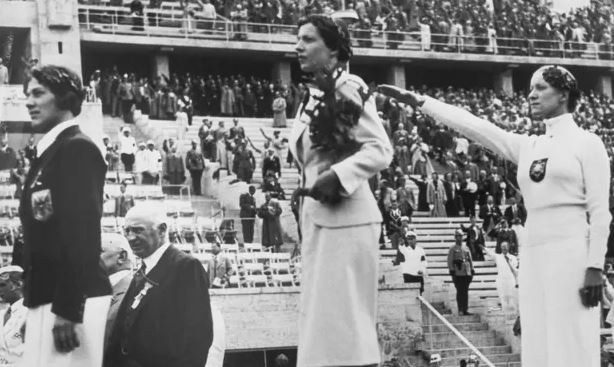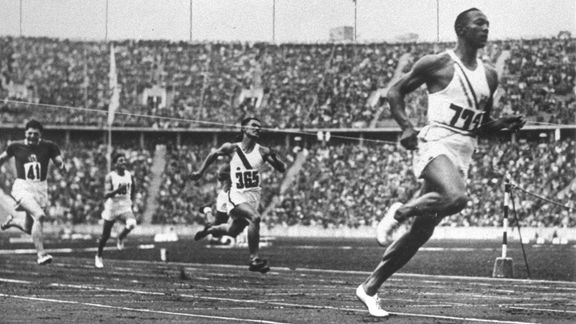Hyderabad: Many stories remained untold. Others unfurled. To a generation, Adolf Hitler has remained the face of unforgivable destruction and human rights abuse.
And this is the story of how the German dictator, a believer in superiority of Aryan race, exerted influence in sports and why it became a tale of lost athletes that the world shouldn't forget.
On April 26, 1931, Berlin was awarded to host the 1936 Summer Olympics at the 29th International Olympic Committee (IOC) Session. The podium provided Hitler the biggest possible show window to promote his belief: Aryan's superior genotype.
The next two years would witness Hitler's growing influence in Germany and by 1933, he had assumed domineering dictatorial powers.
Historians believe that physical attributes such as chiseled body, tallness, white skin, blonde hair, blue eyes was the Nazi's idea of a perfect human embodiment. Physical strength defined Aryans in the realm of Hitler's imagination.
Thus, Olympics, with the participation coming from as many as five continents, became a ticket to showcase Aryan's might — a platform laid out to promote Nazi's propaganda.
What also gone in their favour was that it opened the door of image building process that a fairly nascent organisation like a Nazi party could build internationally in the run up to the games. The Games could well have aided Nazi's desperation of presenting to the world an inclusive Germany, a country ready to forge partnerships and take part in world affairs in the aftermath of World War I, creating a situation to disguise the world from what was coming.
By building a 100,000-seater stadium for athletics and facilities that included as many as six gymnasiums, Germany also made sure to convey that it had effectively recuperated from the economic slump of World War I.
All this came under the dark shadows of soaring anti-Semitism and heightened 'Lebensraum' (territorial expansion), a principle brought upon by Nazi party to establish world dominance.
Before Germany was awarded to host the Olympics, there were concerns within the circles of International Olympic Committee (IOC). However, Hitler had reassured that Jews wouldn't be prohibited from participating in the Games.
It looked different to the outsiders. While at the same time, in Germany, the Nazis had effectively assured that no Jews were allowed to participate in the Games. Refrain was exhibited for Jews from other countries too, not openly though.
Jews and athletes from various countries including the US and Europe did feel the reverberations and were in conundrum with regards to their participation in Berlin. They did consider opting out of the tournament as civil rights movements, human rights ambassadors called for boycotting the German Games.
By this time, pamphlets, circulars and Nazi flags thronged streets and alleys, engendering a situation of perilousness among the Jews living in the country.

Only one Jew athlete — fencer Helene Mayer — participated in the event. Reason: her father was Jewish and her mother was Lutheran. Dubbed as one of the greatest women fencers of all time, she went on clinching a medal for Nazi Germany. Later on, she was witnessed giving Nazi salute at the podium during medal distribution ceremony. Some believe, this might even have saved her family from the labor camps as they were still in the country during the Holocaust.
Hitler's dream, however, came crashing down during the Olympics. A 22-year-old Track and field athlete named James Cleveland Owens, a black man from the US and whose grandfather was a slave, went on clinching four Gold medals. His wins came in 100m, 200m, 4x100m relay and long jump.

The athlete, who had to face racial slur upon his arrival in Germany, recorded a jump of 8.13 metres, a finish that wasn't broken in the next 25 years. A feat admirable as it came in a politically charged atmosphere.
However, Germany did finish with most medals (89) at the end of event ahead of the United States that won 56.
Later, many Jews who took part in the Olympics before 1936 and during that year ended up in concentration camps.
The WWII began and the next two Olympic events were cancelled. The Olympics resumed again from 1948 with Winter Games in Switzerland.
--Ayushmaan Pandey



